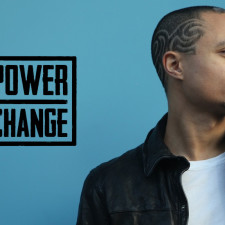The 1960’s was an era categorized by vast political and cultural change. America had elected its first Catholic President, succeeded in launching a revolutionary expedition to the moon, experienced vast racial strife, and was plagued by the most unpopular war in domestic history. From a peripheral view, it may seem that these paramount events define 1960’s America.
Looking back on this decade, it is important to note how the artistic and political advancements of the era were very much intertwine with one another. The Civil Rights Movement, in particular, sparked vast musical and artistic creativity. Talented musicians from all over the nation told their stories of grief and struggle through the powerful tool of song. African-Americans of the era hoped that these ballads would raise awareness of their cause, and ultimately eradicate the proverbial racial fissure that existed in American society. One man who embraced this philosophy wholeheartedly was R&B singer-songwriter Sam Cooke.
In Sam Cooke’s “A Change is Gonna Come,” Cooke expresses the hardships that he must bear as a black man in 1960’s American society. He indicates that even though he has been struggling since he was “born by the river in a little tent,” he is optimistic about the future and “a change is gonna come.” In the third stanza he yells, “I go to the movie and I go downtown…somebody keep tellin’ me, don’t ‘hang’ around.” This line portrays how he not only cannot even enjoy simple pleasures in life such as going to the movies or walking down town, without the constant fear of being lynched. In the fourth stanza, his story continues with the phrase “Then I go to my brother and I say brother help me please. But he wind up knocking me back down on my knees.” This statement could symbolize how blacks are constantly trying to earn their equality from whites but the African-American community is perpetually forced into this inferior social status.
Sam Cooke – A Change is Gonna Come
Through the lyrics, Cooke is able to unveil his story, and the shared story of blacks in America to the world. The musical qualities of the song not only supplement the story Cooke is telling, but also humanizes it. The beginning of the song starts off with a string section soli that radiates a pessimistic mood, however by the end of the section, the song lightens up. This transition is symbolic of the entire piece, as Cooke describes the hardships that blacks must endure but ends with the sentiment of hope and optimism. Throughout the song, the listener can hear the sheer emotion in Cooke’s voice. When talking about his life, his timbre is dark and full of anguish. The accompanying string and horn sections supplement his voice with many minor chords, which illuminate the sense of pain and hardship.
When Cooke reaches his prominent phrase that “A Change is Gonna Come,” however, the darkness that encompasses his voice is replaced by a confident and bright timbre. In addition, Cooke uses an array of instruments to illustrate the different sentiments that he is trying to convey. When portraying sadness and grief, he is accompanied by a single violin that seems to trail of into the background. When portraying anger and determination, he is accompanied by the loud riffs of the horn section.
Cooke uses a variety of accompanying instruments and an impressive range of timbre to evoke the many emotions that defined the Civil Rights Movement. “A Change is Gonna Come” has been featured in venues ranging from Malcolm X’s funeral, to Seal concerts, to American Idol. The song was even used as one of the theme songs for Barack Obama’s 2008 Presidential campaign. Even though this piece was written in 1964, today it continues to serve as a paradigm of musical achievement.
President Barack Obama refers to the lyrics of “A Change is Gonna Come” in his presidential acceptance speech in which he mentions “…it’s been a long time coming”, culminating with his statement “Change has come to America”.
Adam Lambert – “A Change is Gonna Come” Live on American Idol Finale
Colin Zelicof
Tags: 1960's, Adam Lambert, American Idol, Civil Rights Movement, Malcolm X, President Barack Obama, R&B, Sam Cooke, Seal


 Share On Facebook
Share On Facebook Tweet It
Tweet It




